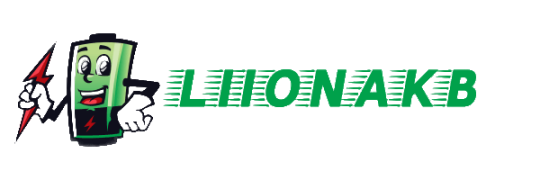Frequently Asked Questions
Below are the frequently asked questions about batteries, covering many issues related to your home or business LiFePO4 battery, Li-ion battery and DIY battery projects. Of course, you can also speak with one of our dedicated team members today at info@liionakb.ru.
The experts at Battery Finds are here to help!
You will receive a tracking number by email when your order ships.
Yes. For large wholesale orders you can Contact Us for custom pricing.
Yes, we ship the battery with the Busbars connector and screws. Of course you can also contact us for solderless LiFePO4 batteries.
It depends on where you are. Orders processed here will take 1-3 business days to arrive. Overseas deliveries can take anywhere from 7-16 days. Delivery details will be provided in your confirmation email.
We always aim for make sure our customers love our products, but if you do need to return an order, we’re happy to help. https://liionakb.ru/wattanty-returns/
A. Lithium-ion batteries are rechargeable batteries in which lithium ions move from the anode to the cathode during discharging and back when charging. They are popular batteries for use in consumer electronics because they provide high energy density, possess no memory effect and have a slow loss of charge when not in use. These batteries come in a wide variety of shapes and sizes. Compared to lead-acid batteries, Lithium-ion batteries are lighter and provide a higher open circuit voltage, which allows for power transfer at lower currents. These batteries have the following characteristics:
Features of ionic Lithium-ion Deep Cycle Batteries:
Light weight, up to 80% less than a conventional, comparable energy storage lead-acid battery.
Lasts 300-400% longer than lead-acid.
Lower shelf discharge rate (2% vs. 5-8% /month).
Drop-in replacement for your OEM battery.
Expected 8-10 years of battery life.
No explosive gasses during charging, no acid spills.
Environmentally friendly, no lead or heavy metals.
Safe to operate!
The term “Lithium-ion” battery is a general term. There are many different chemistries for Lithium-Ion batteries including LiCoO2 (cylindrical cell), LiPo, and LiFePO4 (cylindrical/prismatic cell). Ionic mostly focuses on designing, manufacturing and marketing LiFePO4 batteries for its starter and deep cycle batteries.
1. Larger monomer capacity.
2. Higher stability.
3. Higher security.
4. Higher space utilization.
5. Lighter weight.
…
A. Lithium Iron Phosphate (LiFePO4) batteries provide several advantages over traditional Lithium-ion batteries based on LiCoO2 chemistry. LiFePO4 batteries provide much higher specific capacity, superior thermal and chemical stability, enhance safety, improve cost performance, enhanced charge and discharge rates, enhanced cycle life and come in a compact, lightweight package. LiFePO4 batteries an offer a cycle life of over 2,000 charge cycles!
A. Lithium-ion batteries provide multiple advantages over standard lead-acid batteries for energy storage use that we’ll outline below:
Substantially Lighter – Lithium-ion batteries are just a fraction of the weight of the original lead-acid battery.
More Powerful – Lithium-ion batteries operate at a higher voltage than standard lead-acid batteries, giving you faster engine speed for longer durations. Lead-acid batteries drop to just 12.5V when only 20% of the battery capacity is used, but lithium-ion batteries provide over 12.8V even when only 20% of the battery capacity is left.
Low Self-Discharge Rate– Lead-acid batteries lose 4%-25% of their charge every month depending on the quality of the plates and separators used. If you leave a vehicle unattended for a month, the lead-acid battery might lose too much power and the vehicle might not start. On the other hand, our lithium battery chemistry loses less than 3% of charge per month; you can go for several months without having to worry.
Environmental Friendly– Ionic batteries contain no toxic substances. There is no poisonous lead or corrosive sulfuric acid and as a result, no possible way for an explosive gassing event that is common with lead-acid batteries. In addition, there is no need to maintain acid levels or worry about venting like traditional lead-acid batteries do. The only maintenance that ionic batteries require is ensuring that the battery never drains beyond 80% to ensure optimal life.
Long Lasting– Cheap lead-acid batteries usually only last 1 to 2 years while gel and AGM lead-acid batteries last 3-5 years with proper maintenance. However, ionic’s lithium-ion batteries can provide 8-10 years of use, easily exceeding the life of any lead-acid battery. Battery life depends purely on proper operation and maintenance, so use common-sense and ensure the battery does not drain beyond 80% discharge. If you are replacing a lead-acid battery in two years or less due to deep cycling damage, you will save money in the long run moving to a ionic lithium-ion
Fast Recharging – ionic’s lithium-ion batteries can accept charge current at up to 5 times faster than a lead-acid battery. What’s more, the charge efficiency is about 75% for lead-acid in contrast to 97% for ionic’s lithium-ion battery. That means less energy is needed to charge and causes less strain on your alternator.
A. Ionic’s “Deep Cycle” batteries have true lithium capacity rating at 1C discharge rate meaning a 12Ah “Deep Cycle” lithium-ion battery will be able to provide 12A for 1 hour. On the other hand, most lead-acid batteries have a 20hr or 25hr rating printed for its Ah capacity meaning the same 12Ah lead-acid battery discharging in 1 hour would typically only provide 6Ah of useable energy. Going below 50% DOD will damage a lead-acid battery, even if they claim to be a deep discharge battery. Thus a 12Ah lithium battery would perform closer to a 48Ah lead-acid battery rating for higher discharge currents and life performance.
Ionic’s lithium-ion batteries have 1/3 the internal resistance of a similar capacity lead-acid battery and they can be safely discharged to 90% DOD. Lead-acid internal resistance rises as they are discharged; the actual capacity which can be used may be as little as 20% of the mfg. rating. Discharging in excess will damage the lead-acid battery. Ionic’s lithium-ion batteries hold a higher voltage during discharge.
